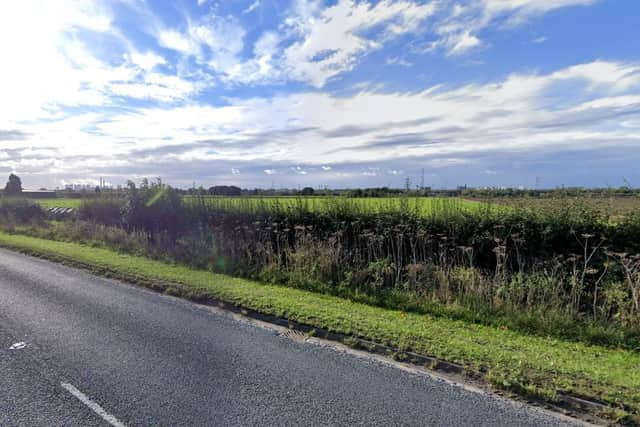Plan for new secondary school on 'top grade' farmland in Yorkshire should be approved, say planners
North Yorkshire Council’s strategic planning committee will on Tuesday (April 9) consider the multi-million pound scheme to provide education for pupils aged three to 19, south of of the A63 Hull Road, Osgodby, near Selby, some six years after the authority bid for Government funding for the development.
In 2018, a council press release relayed a community representative stating “Selby families have struggled for years with having to bus youngsters to schools in other areas”.
Advertisement
Hide AdAdvertisement
Hide AdThe proposed school has capacity for 100 pupils and would focus on those with communication and interaction needs, including autism and speech, cognition, learning and communication needs. It has been forecast up to 20 per cent of pupils would be non-ambulant and 70 members of staff would work at the school.


With rising numbers of children being diagnosed as SEND, an ambition for SEND children to be taught more locally and the council facing spiralling school transport bills, last year the authority estimated 350 more SEND school places would be needed in North Yorkshire by 2028..
Alongside the Department of Education developing another free special school, in Northallerton and enabling more SEND pupils to attend mainstream schools, the council is aiming to expand Springwater Special Schoolin Harrogate and develop a new secondary school for autistic children in a centre of the county.
The proposed school would be run by Wellspring Academy Trust, which manages 31 schools in the north of England.
Advertisement
Hide AdAdvertisement
Hide AdAmong 175 letters in support of the application sent to the council, parents said the scheme would end SEND children from the area having to travel excessive distances to access appropriate education.
One parent wrote: “There are too many SEN children having to travel for hours to receive a suitable education they can access and are entitled too. The parents and children with neurodiversity and disabilities already have to fight far too much, this school should be a given not another fight.”
Another parent added: “Our children are in great need of a SEND school in our area rather than sending them miles away via taxi to get the appropriate schooling. Schools and local family’s have been put under great pressure and strain to cope and manage these children and this would help everyone.”
Nevertheless, both the Campaign to Protect Rural England and Osgodby Residents Association have objected to the proposal, highlighting the loss of grade I agricultural land and impact on those who live nearby.
Advertisement
Hide AdAdvertisement
Hide AdThe objections follow an increasing concerns being raised by councillors and campaigners over the amount of North Yorkshire’s best farmland that is being developed, for projects ranging from holiday parks to solar farms.
Objectors have claimed although the land was bought in 1919 by East Riding County Council to provide affordable farms for men returning from the First World War, “the agricultural heritage of this area and the importance of arable land seems to be lost on North Yorkshire Council”, which inherited the land in 1974.
A spokesman for the association said: “Too much arable land has already been lost to development in Selby District and there are many brownfield sites being left undeveloped. Once high quality arable land is built on it is gone forever and cannot be replaced, this is not good for the farming industry, the environment nor the long-term economy.”
In response to the concerns, planning officers said the Selby area benefits from a high proportion of best and most versatile farmland, so the need to safeguard it “is not as critical as it may be in other locations”.
In a report to the planning committee, the officers stated: “It is inevitable that to deliver future development best and most versatile land will be lost.”
Comment Guidelines
National World encourages reader discussion on our stories. User feedback, insights and back-and-forth exchanges add a rich layer of context to reporting. Please review our Community Guidelines before commenting.
